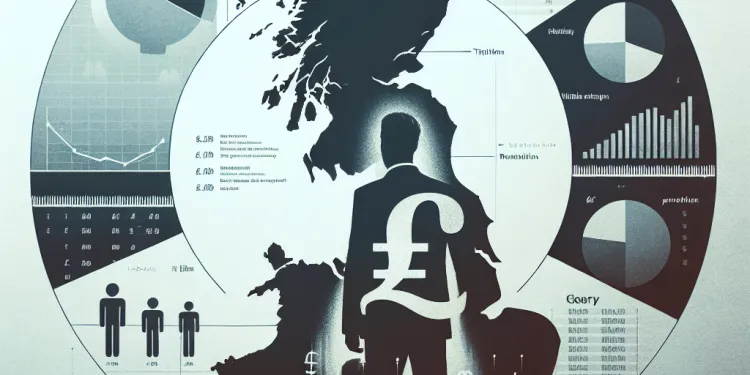
Find A Professional
Introduction
Public opinion on economic policies can be a powerful influence on political decision-making in the United Kingdom. One such policy is the concept of a wealth tax, which is designed to levy taxes on individuals' net wealth above a certain threshold. This proposal has gained attention in recent years, especially as economic inequality has become a focal issue in political discourse.
Current Sentiment
Various studies and surveys have been conducted to gauge public opinion on the introduction of a wealth tax in the UK. These surveys consistently reveal a notable level of support among the British public, reflecting a general sentiment that such a measure could address wealth inequality and contribute to public services.
A survey conducted by YouGov found that a significant portion of the population supported the idea of taxing the wealthiest citizens more heavily. The data suggested that approximately 61% of respondents were in favor of implementing a wealth tax as a means to reduce income inequality and generate additional government revenue.
Demographic Differences
Public support for a wealth tax varies across different demographic groups. Generally, younger people are more supportive of the measure compared to older demographics. For instance, a higher percentage of individuals under 35 years of age favor the introduction of a wealth tax, perceiving it as a tool for social justice and economic balance. Meanwhile, older individuals, particularly those approaching or in retirement, tend to be more skeptical, possibly due to concerns about pension impacts or the implications on their accumulated wealth.
Political affiliation also plays a role in shaping opinions on this issue. Those aligned with left-leaning political parties, such as the Labour Party, are more likely to support a wealth tax, viewing it as consistent with progressive taxation principles. In contrast, Conservative Party supporters are less enthusiastic about the proposal, often citing fears of economic disincentives for wealth accumulation and investment.
Influence of Economic Conditions
Economic conditions and events can also sway public opinion regarding taxes on wealth. In times of economic hardship, such as during or following a recession, the public may be more amenable to policies that are perceived to redistribute wealth and support social safety nets. Conversely, during periods of economic growth and stability, there may be less urgency or perceived need for such measures.
Notably, the aftermath of the COVID-19 pandemic intensified discussions around wealth taxes, as the economic impact prompted calls for innovative fiscal policies to boost public finances and address deepening inequality.
Conclusion
While there is substantial public support for a wealth tax in the UK, particularly among younger and more left-leaning individuals, the appetite for such a policy is not universal. Demographic factors, political affiliations, and economic conditions all influence public opinion. As the debate continues, policymakers must consider these dynamics when proposing or implementing fiscal reforms aimed at reducing inequality and enhancing public finances.
Introduction
What people think about money rules can change what leaders do in the UK. One money rule is called a "wealth tax." This is a way to take some money from people who have a lot of it. The idea is to use this money to help others. People are talking more about this because some people have a lot while others don’t have enough.
What People Think Now
There have been many surveys to see what people think about the wealth tax in the UK. These surveys show that lots of people agree with the idea. They think it might help make things fairer and pay for things everyone needs.
One survey by YouGov showed that about 61 out of 100 people like the idea of a wealth tax. They think it can help balance how money is shared and give the government more money to help everyone.
Different Views
Not everyone agrees about the wealth tax. Younger people usually like it more than older people. Many young people under 35 think it helps make things fairer. Older people, like those close to retirement, often worry it might not be good for their savings.
What people think can also depend on their political views. People who like the Labour Party often agree with the wealth tax. They think it's fair to ask richer people to pay more. On the other hand, conservative supporters usually worry it might stop people from wanting to earn more money.
How Economic Times Change Views
When the economy is bad, like during a recession, more people might support the wealth tax. They see it as a way to help those who are struggling. But when the economy is doing well, fewer people might think it’s necessary.
After COVID-19, more people talked about wealth taxes. The tough times made people think about new ways to help everyone and make things fairer.
Conclusion
Many people in the UK like the idea of a wealth tax, especially young people and those with left-leaning views. But not everyone agrees. How people feel about it can change based on their age, political views, and how the economy is doing. Leaders need to think about all these things if they want to change the rules to help share money more fairly.
Frequently Asked Questions
Useful Links
- Ergsy carfully checks the information in the videos we provide here.
- Videos shown by Youtube after a video has completed, have NOT been reviewed by ERGSY.
- To view, click the arrow in centre of video.
- Most of the videos you find here will have subtitles and/or closed captions available.
- You may need to turn these on, and choose your preferred language.
- Go to the video you'd like to watch.
- If closed captions (CC) are available, settings will be visible on the bottom right of the video player.
- To turn on Captions, click settings .
- To turn off Captions, click settings again.